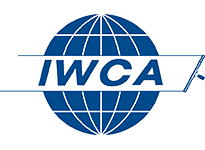Why Parking Garage Cleaning Is the #1 Commercial Cleaning Service in the Winter

Statistically, the month of February is the coldest month of the year for the northern hemisphere, and more specifically, the east coast. The reason is due to cumulative cooling and a relatively low sun angle. Land and water cool down through most of the winter. At the start of winter, this cooling process continues. By late winter in March, the sun angle is high enough that temperatures are warmer. By March, the sun angle is starting to get high enough that cooling stops and the temperatures begin to warm. So indeed, the coldest month on the calendar is February.
But without question, cold weather doesn’t equal NEGLECT in the property management industry. And the number one commercial cleaning service for exterior cleaning companies across the east coast is parking garage cleaning and scrubbing services. Clean and well-maintained parking garages create the best first impression for tenants and visitors, deters rodents from making homes in parking garages, and helps to keep sand, salt, dirt, and debris from accumulating in garages and being dragged into office buildings (damaging floors and carpet!).
Without a doubt though, the biggest culprit that absolutely needs to be removed and cleaned from a parking garage is SALT. Below is some critical information about why property managers all over the east coast should never neglect their parking garages, especially in the coldest month of February—and why it is equally as important to remove the damaging substance of salt.
Why Does Salt Need to Be Cleaned from Concrete Surfaces?
It is critical in the winter to take extra special care of concrete surfaces, especially in a parking garage. With all the salt that enters a garage in winter, if it remains on the concrete for an extended period, damage could ensue. Salt does not damage concrete, but the effects of salt can. Salt does not chemically react with hardened concrete. Salt does, however, lower the freezing point of water, attract moisture, and increases the pressure of frozen water.
Salt can also increase the freeze-thaw cycles which is a cycle that can severely damage concrete with cracks and crevasses that can be quite deep and thus warrant repair or even costly replacement. The better quality the concrete, the less likely that salt will have an adverse effect on the concrete. If you use a good concrete sealer, that can certainly help.
One important thing to note is to never use de-icers on concrete that contains ammonium sulfate or ammonium nitrate. Concrete gets stronger with time and needs to keep “hydrated”. Concrete hydrates pretty much forever and gets stronger with time. The more time it gets to come up to strength the less likely ice pressure will exceed the tensile strength of the concrete. We recommend sand, or even Kitty Litter, as it is inexpensive and environmentally friendly. Salt dries water rapidly and thus the concrete cannot remain hydrated.
Sign Up for February Parking Garage Cleaning Today!
So heed the advise of the garage cleaning companies and concrete experts and maintain garages all year long, especially in the coldest month of February!
Contact KEVCO for all your commercial cleaning needs in Washington, DC, Maryland, and Virginia.








